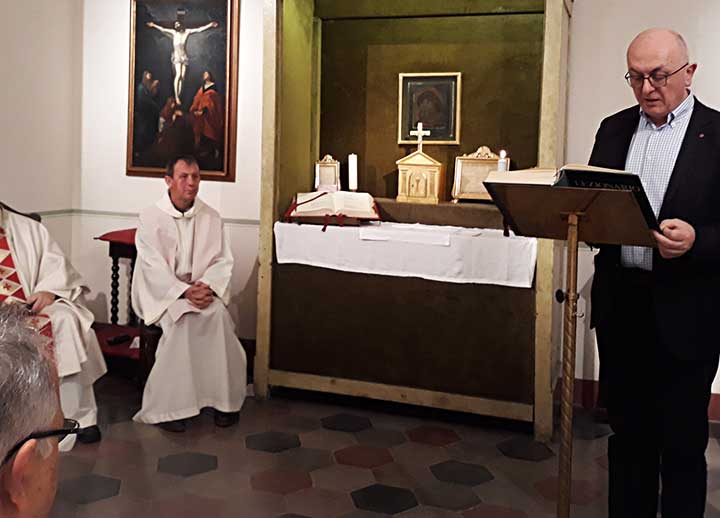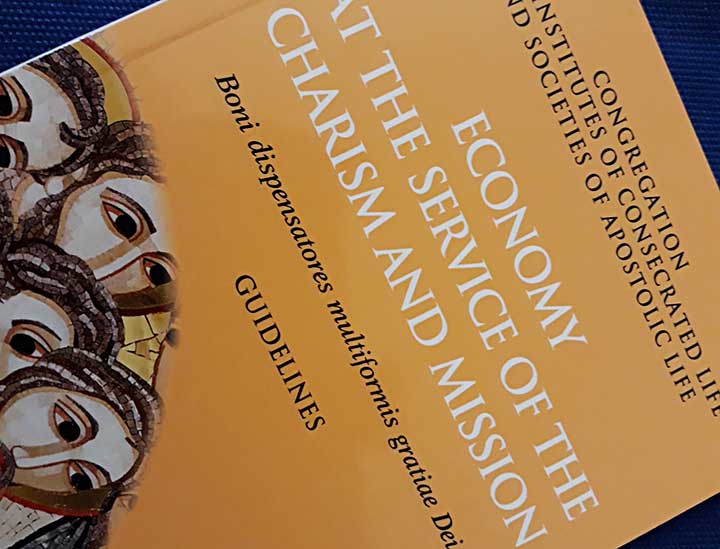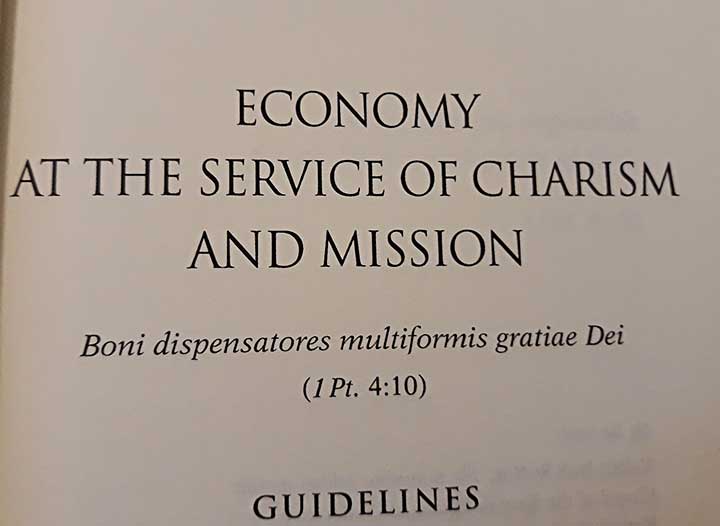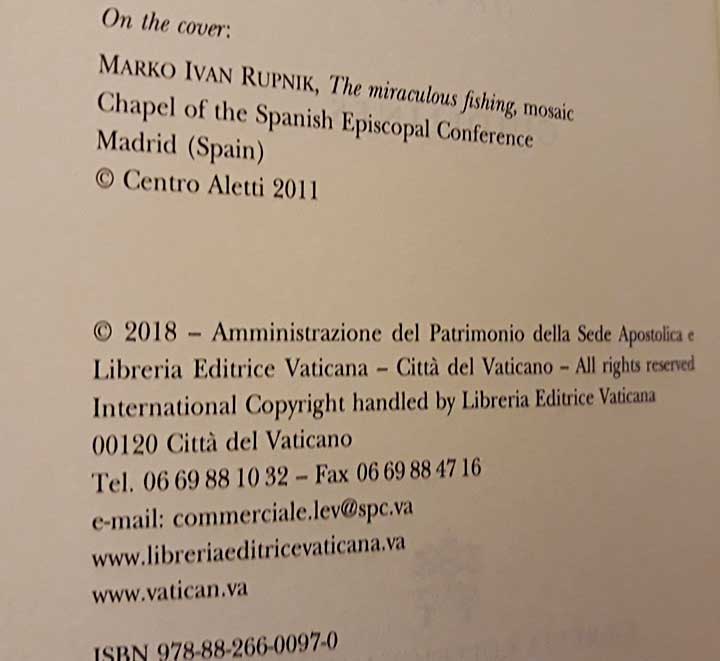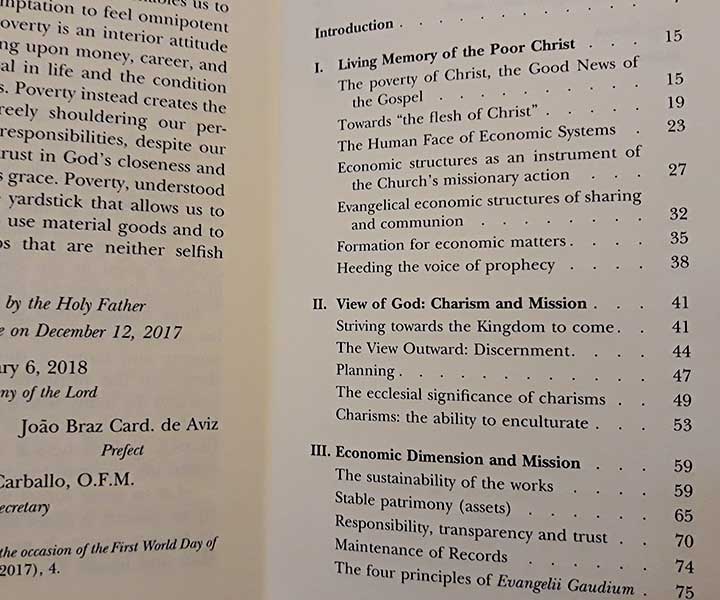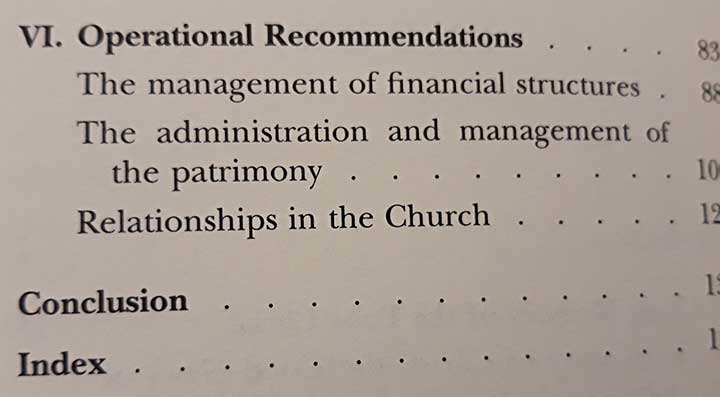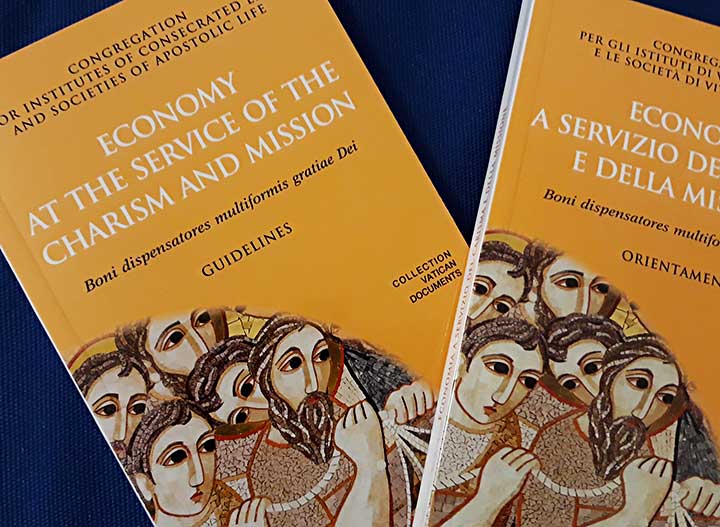
‘Economy at the service of the Charism and Mission’
Vatican, 2 April 2018 -- One of the most recent indications for the Catholic religious are the ‘Guidelines for the Economy at the service of the Charism and Mission’, published by the Congregation for Institutes of Consecrated Life and Societies of Apostolic Life and approved by Pope Francis in the audience on December 12, 2017.
The digital version does not yet exist and the only way to acess this precious indication is just get a hard copy published by the LEV (Libreria Editrice Vaticana, 2018, p. 136, Euro 10.00) or few pages accessible on the Boscolink.
These Guidelines are a precious instrument not only for our Provincial and their Economers, but offer a clear Gospel style vision for living the poverty within the complex world of today, distributed in four parts: (1) Living Memory of the Poor Christ; (2) View of God: Charism and Mission; (3) Economic Dimension and Mission; (4) Operative Recommendations. The 99 articles of the document offer also quite clear indication for a variety of issues dealt by our Economers today: Administrative Procedure Manual, Legal Representatives, Internal control and External audit, Sharing of Assets, New Constructions, Authorizations of the Holy See for the possible recourse to credit – for leases, financing or loans, Financial investments or the Duty to give accounts and Record keepings.
But probably the most enlightening are the Gospel principles for the sustainability of our Mission: e.g. The works should be not identified with the mission (23), Need to channel all our resources for the evangelization of today’s world rather than for the self-preservation of our structures (24), Need of discernment and planning (25-26), Reshaping of the works and their management (27) and Need of working together, networking.
The four principles of Evangelii Gaudium (221-237) are shown in mission & economy context:
- Time is greater than space: Against temptation that religious families should occupy spaces rather than start processes based on the needs of the most fragile people of today
- Reality is more important that the ideas: The works of our Institutes should need the real needs of real people and not fall into temptation of structures or ideas of novelty
- The whole is superior to the part: We are called to broaden our vision and never fall into temptation of limited matters, but looking for the benefits to all. Consecrated people can help the local Church to open up to the dynamism of universality.
- Unity prevails over conflict and diversity. We are called to accept conflicts, willing to get our hand dirty but always with confronting together and in united fashion the most pressing questions of today like life, family, fight against poverty and education
- …
This small booklet offers a lot of light on the daily struggle of each economer (bursar or treasurer) who is entrusted with a steward ministry as reminded already by Don Bosco: 'Remember well, that what we have is not ours; it belongs to the poor; woe to us if we don not use it well." (SDB Constitutions art. 79 quoting the Biographical Memoirs V,450)
Related resources:
- Boscolink: Scrutiny of Poverty - Br. Jean Paul Muller
- Boscolink: Digital version of the the Guidelines
- Boscolink: EAO Provincial Economers Action plan 2018
